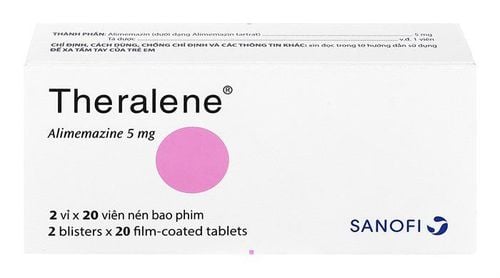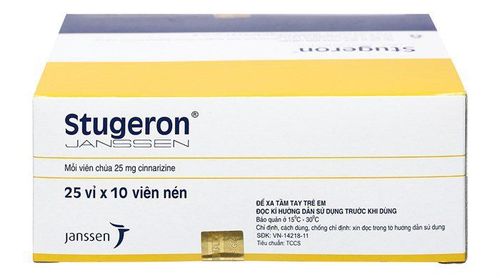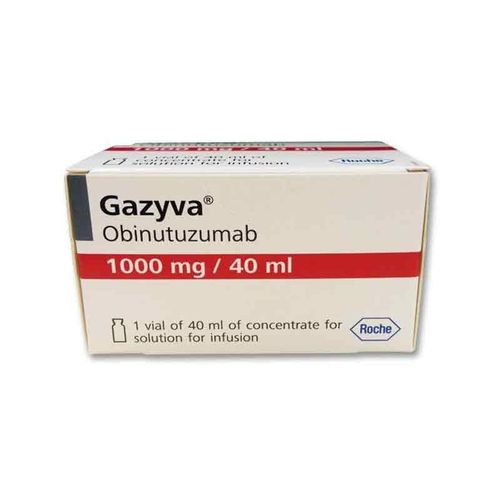This is an automatically translated article.
Tisagenlecleucel is a cancer treatment with cellular immunotherapy. The following article will introduce you to some information about this treatment.
1. What is Tisagenlecleucel?
Tisagenlecleucel is a cancer treatment with autologous T-cell immunotherapy genetically engineered with CD19. T cells are part of the immune system, they are removed from the body by an intravenous line called leukocyte electrophoresis. In the lab, patients add a chimeric antigen receptor (CAR) to their T cells and retransfuse the T cells into the body. CAR gives T cells the ability to identify, attack, and destroy cancer cells.
2. How to use Tisagenlecleucel
Tisagenlecleucel is given by an intravenous (IV) line and the dosage will be individualized for each patient. The patient may be given chemotherapy in the days before the infusion to prepare for treatment with tisagenlecleucel. Before infusion of tisangenlecleucel, medications including acetaminophen (Tylenol) and H1 antihistamines such as diphenhydramine will be prescribed. Viruses in the body can reactivate after this mediated treatment. Therefore, before use, patients should be tested for hepatitis B, hepatitis C and HIV before using tisangenlecleucel. Patients should consult their doctor before receiving vaccines.
3. Some side effects may occur when using Tisagenlecleucel
A common side effect of Tisagenlecleucel such as:
3.1 Cytokine release syndrome After using Tisagenlecleucel, a large number of white blood cells are activated and massively release inflammatory cytokines leading to syndrome cytokine release. Some of the more severe cases are called cytokine storms. Signs include high fever, low blood pressure, difficulty breathing, severe nausea and vomiting, severe diarrhea, chills, tremors, severe muscle and joint pain, and bleeding. This serious side effect can occur for up to 4 weeks after the infusion. Patients should notify their physician immediately if they have any signs or symptoms of cytokine release syndrome so that appropriate treatment can be instituted.
3.2 Nervous system toxicity The drug can cause serious neurological problems that are common within the first 8 weeks after infusion including headache, convulsions, personality changes, anxiety, disorientation, confusion, agitation and tremors. You should tell your doctor right away if you have any of the above symptoms.
3.3 Infection and low white blood cell count Drugs can cause life-threatening infections and can lower white blood cell counts. White blood cells are very important cells that play a role in fighting infections. During treatment, a patient's white blood cell count may drop, putting them at higher risk of infection.
3.4 Hypoglycemia This medicine may decrease immunoglobulin levels. During treatment with tisagenlecleucel blood glucose levels will be monitored and immunoglobulin can be used as needed.
3.5 Reduce Appetite Nutrition is an important part of ensuring a patient's well-being. Cancer treatment can affect their appetite and in some cases side effects of treatment can make it difficult to eat. Several approaches can be taken by patients to improve nutrition:
Eat several small meals throughout the day instead of just three larger meals. The patient may experience a metallic taste in the mouth, fail to recognize the taste of food, or even dislike foods that were previously enjoyed. These symptoms may persist for several months or longer after treatment ends. Avoid foods that don't taste good or smell bad. Add flavor to meat or fish by marinating with sweet juices, sweet and sour sauces. Use spices like basil, oregano, or rosemary for extra flavor. Bacon, ham, and onions can add flavor to vegetables. 3.6 Increased heart rate The drug can increase heart rate, also known as tachycardia, with symptoms of heart palpitations, chest pain, dizziness, or shortness of breath.
3.7 Kidney problems Medicines that can cause kidney problems include increased creatinine levels. Therefore, during the course of treatment, the patient will be continuously monitored for the blood count. When there is a decrease in the amount of urine, blood in the urine, swelling of the ankles or loss of appetite, it is necessary to notify the doctor immediately. have appropriate treatment.
Less common but important side effects to watch out for include:
Allergic reactions: In some cases, patients may have an allergic reaction to this medication with symptoms of shortness of breath or shortness of breath, chest pain, rash, flushing or itching, or a drop in blood pressure. During the infusion, if there is any abnormality, let the nurse know immediately. Secondary cancer: Secondary cancer is a disease that develops as a result of cancer treatment for another cancer. This situation is very rare, but it also needs to be prepared in advance. In most cases, the secondary cancer associated with chemotherapy is leukemia, lymphoma, and leukemia. This can occur many years after treatment and is often associated with repeated treatment or high doses. Hopefully, the above sharing will help patients understand the process of taking the drug as well as how to achieve high efficiency when using Tisagenlecleucel.
Please dial HOTLINE for more information or register for an appointment HERE. Download MyVinmec app to make appointments faster and to manage your bookings easily.
Reference source: oncolink.org












